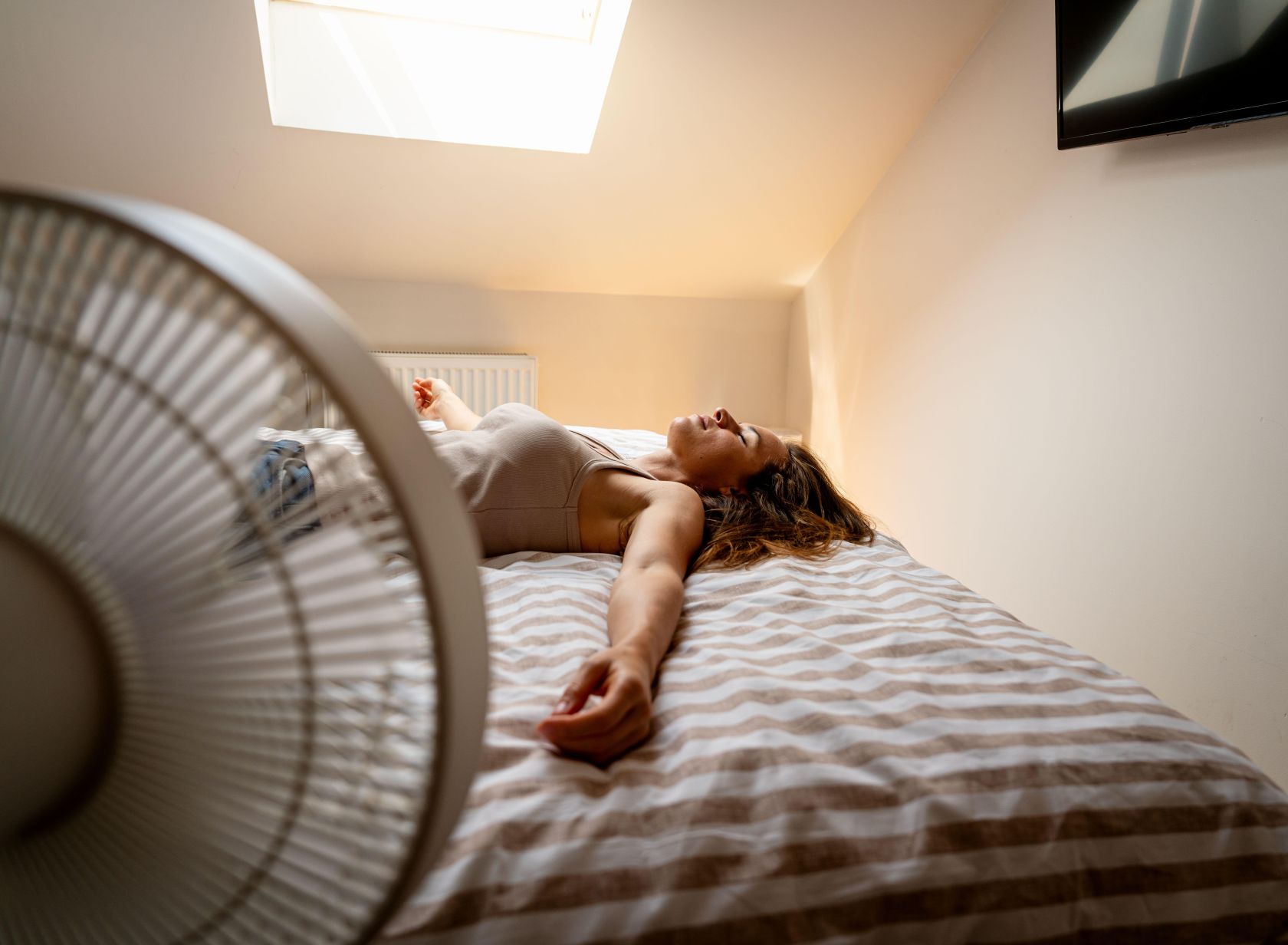While many of us eagerly await sunny skies and warmer days, the reality of a full-blown heatwave often leaves us feeling overheated, drained and far from refreshed.
So, how exactly does this intense heat affect our mood and our mental wellbeing? We spoke with Dr Ravi Gill, practitioner psychologist, to uncover the psychological impact of prolonged high temperatures and what we can do to stay balanced.
Can heatwaves impact our mood?
Physiological changes in the body and brain due to heat can significantly affect mood during a heatwave. “Heat disrupts neurotransmitter systems (serotonin), impairs sleep and raises stress hormones like cortisol, which are key regulators of mood and impulse control,” says Gill.
The physical discomfort and disrupted sleep from heatwaves can also exacerbate mood instability, trigger anxiety spikes, or worsen irritability, says the psychologist.
“Lingering discomfort and environmental stress strains emotional resilience, making even minor irritants feel overwhelming,” adds Gill. “Heatwaves can also escalate social tensions – whether at home, in traffic, or public spaces – turning minor triggers into conflicts.”
Research also suggests that people with pre-existing mental health conditions are more vulnerable during heatwaves.
“Conditions such as anxiety, depression, bipolar disorder, or schizophrenia can make it harder to recognise early signs of heat stress or to take action,” notes Gill, “In addition, some psychiatric medications (e.g., antipsychotics, certain antidepressants, mood stabilisers) reduce the body’s ability to sweat or regulate temperature, increasing the risk of heat exhaustion or heatstroke.”

What impact do sleep disturbances by heat have on our mood and minds?
“High night time temperatures make it harder for the body to drop its core temperature, which is essential for initiating and maintaining deep, restorative sleep,” says Gill. “People wake more often, particularly during REM sleep, which is vital for emotional processing and memory consolidation. Difficulty falling asleep and staying asleep reduces overall rest.”
This can have a profound impact on our emotional regulation.
“Poor sleep lowers activity in the prefrontal cortex (responsible for impulse control) and heightens amygdala reactivity (linked to fear, anger, and anxiety). This makes us more emotionally volatile,” explains Gill. “Lack of REM sleep amplifies stress responses and reduces resilience to everyday frustrations.
“In addition, sleep deprivation impairs attention, working memory, decision-making, and problem-solving, increasing mental fatigue.”
What impact can heatwaves have on our cognitive functions like memory, focus and decision-making?
“Heatwaves can impact and impair core cognitive functions like memory, focus and decision-making, and the reasons are a mix of direct brain effects and secondary factors like dehydration and sleep disruption,” says Gill.
Reduced cerebral blood flow, neurotransmitter disruption and electrolyte imbalance are just a few factors that can have significant impacts on our cognitive function during a heatwave.
“High temperatures can cause blood vessels to dilate and divert blood toward the skin for cooling, reducing blood flow and oxygen delivery to the brain’s thinking centres (especially the prefrontal cortex),” explains Gill. “Meanwhile, heat stress also alters the balance of dopamine, serotonin and acetylcholine, which are critical for attention, learning and memory.
“Sweating also depletes sodium, potassium, and other electrolytes, affecting nerve signal transmission and slowing mental processing.”

What impact can dehydration during heatwaves have on our mood and mind?
“Even mild dehydration (1-2 percent body weight loss in fluids) can slow neural processing and impair memory, attention, and reaction time,” says Gill. “Dehydration increases cortisol and alters serotonin activity, leading to irritability, anxiety, and lower frustration-tolerance.
“Reduced blood volume and electrolyte imbalances limit oxygen and nutrient delivery to the brain, causing mental sluggishness.”
Here are some coping strategies to help counter-balance some of these effects…
Prioritise hydration with electrolytes
“Drink water regularly, not just when you feel thirsty, and include electrolyte sources,” advises Gill. “This helps to maintain optimal brain signalling, prevents cognitive slowing, and reduces irritability linked to dehydration.”
Maintain a cooling sleep environment
“Try to keep to a consistent sleep-wake schedule. Use fans, blackout curtains, breathable bedding, and, if possible, pre-cool your bedroom before sleep,” recommends Gill. “Preserving deep and REM sleep protects emotional regulation, memory consolidation, and decision-making capacity.”
Practise heat-adapted stress regulation
“Use grounding or breathing exercises in cooler parts of the day – gentle stretching or yoga in shaded or air-conditioned spaces can also help,” says Gill. “These regulate cortisol and keep the nervous system from staying in a prolonged “fight-or-flight” state.”
Structure your day around the heat
“Schedule mentally demanding tasks for cooler morning hours and take regular breaks during peak heat,” suggests Gill. “This protects focus and working memory, reducing mistakes caused by heat-related cognitive fatigue.”















